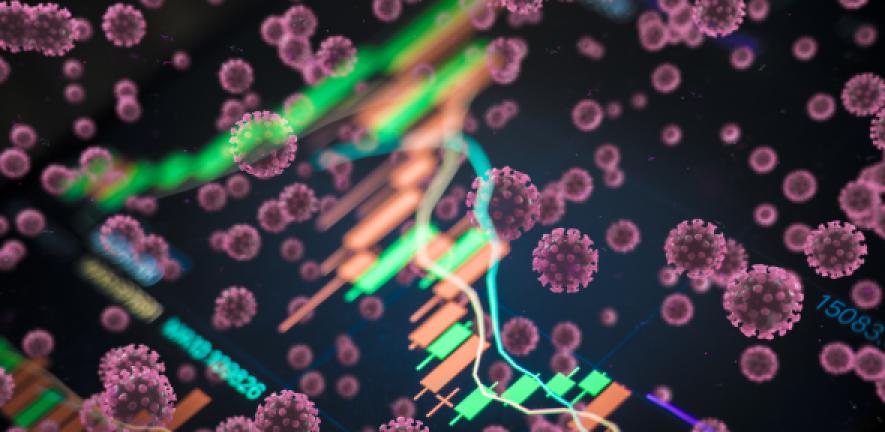
Submitted by clarem on 10th February 2021
From January 2021, for up to eighteen months, the Newton Gateway will play a key role in the RAMP Continuity Network (a UKRI funded project) and will deliver a series of meetings, workshops and virtual study groups. The aim of this will be to ensure scientific networking to help maintain strong communication links among RAMP-initiated projects, and further develop links between these and the wider modelling community around COVID-19. This will help to create a truly multiscale approach and will ensure engagement with the wider mathematical community as well as with those from industry and the public sector.
Background:
From March 2020, The Royal Society used its convening power to support efforts to model the Coronavirus (COVID-19) pandemic and guide the UK’s response. The Rapid Assistance in Modelling the Pandemic (RAMP) initiative brought modelling expertise from a diverse range of disciplines to support the pandemic modelling community already working on Coronavirus (COVID-19).
RAMP was designed to provide support for existing research groups; create new models or insights that could be used to inform the work of the Government’s scientific advisors, through data science-based approaches; apply knowledge from related epidemiology domains; and triage incoming literature to ensure effective information flows. The goal of RAMP was to enhance modelling capacity to support rapid assessment of strategies of immediate policy relevance.
Since the formal end of RAMP's volunteer programme in July 2020, many individuals have returned to their pre-RAMP focus. A number of activities have secured some level of continuation funding and these teams are now operationally independent of RAMP.
At the same time that the RAMP initiative was developed, two other streams of work were being taken forward. In March 2020, in response to the pandemic, the Virtual Forum for Knowledge Exchange in the Mathematical Sciences (V-KEMS) was established. The Gateway, Isaac Newton Institute (INI), International Centre for Mathematical Sciences (ICMS)and Knowledge Transfer Network (KTN) have been working with various representatives from the mathematical sciences community. The main aim has been to identify a range of virtual approaches to help address challenges from business and industry, the third sector, and other groups outside academia. These challenges may have been long-standing or may have arisen directly as a consequence of the present disruption to UK society.
RAMP Continuity Network Activity:
Links made from the INI IDP Programme will be built upon and expertise and connections gained from the V-KEMS activities will ensure as joined up an approach as possible. Close links will also be made with the recently formed JUNIPER (Joint UNIversities Pandemic and Epidemiological Research) consortium. This UKRI funded consortium comprises epidemiological modellers and statisticians across seven universities whose work feeds directly into government scientific advice channels such as SPI-M and SAGE.
2 strands of work are planned – one in support of JUNIPER and another that will build upon the workstreams that RAMP focused on.
- The Gateway will develop a number of short meetings that will react to key priority areas in the UK’s response to the current pandemic. These events will be guided by links with groups such as the JUNIPER consortium to ensure their relevance to current UK policy, and will engage with the wider mathematical modelling and epidemiology communities. These events will reflect and share details of the key emerging issues, discussions, and expertise that is being developed, exploiting new data as available. These meetings will set agendas to help provide rapid reactionary support, engaging with the wider modelling community.
- The Gateway will also develop a number of three-day scientific meetings that will further develop those taken forward by different Task Teams as part of the RAMP initiative.
Specific topics will emerge over the period of the project, but the initial activity is likely to discuss:
• Environmental and aerosol transmission
• Human dynamics in small spaces
• Connecting epidemic models to urban analytics
The Programmes and dates for the first events are being developed and if you would like to kept up to date please contact the Gateway for further details. More information will be available on the Initiatives webpage.

